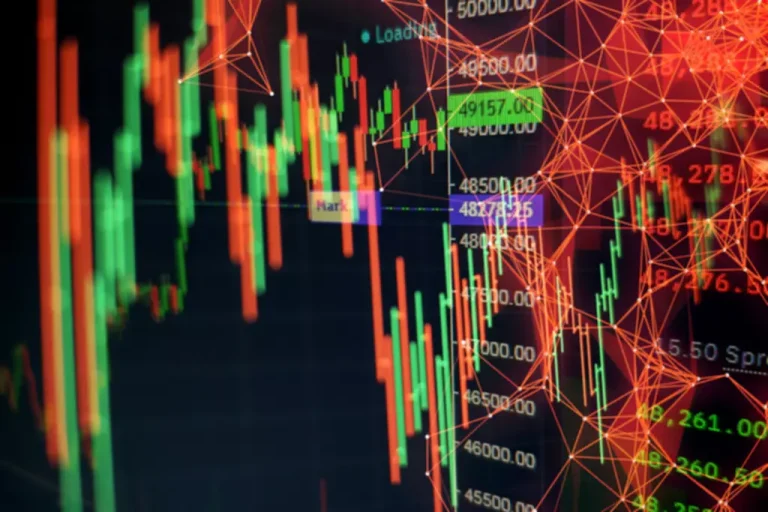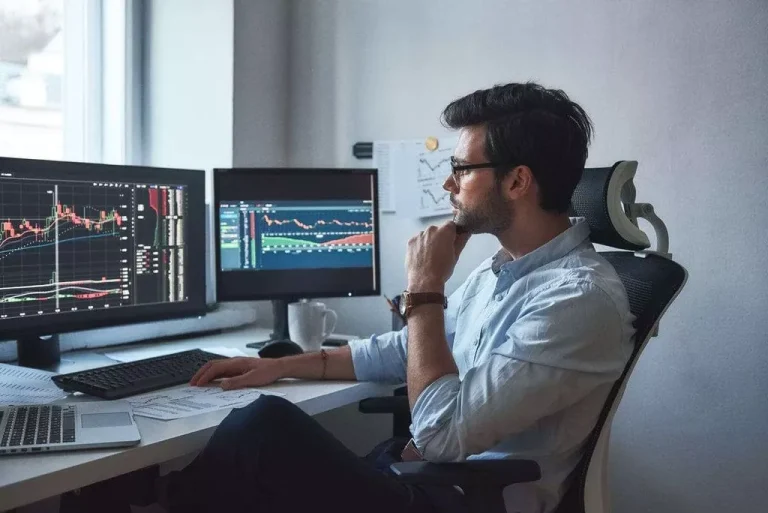Content
With our world-class capabilities in automation and pricing, we can offer global investors tighter spreads and increased liquidity. These actions by market participants, commonly described as arbitrage, help keep the market-determined price of an ETF’s shares close to its underlying value. An index-based ETF may replicate its index (that is, it may invest 100 percent of its assets proportionately in all the securities in the target index) or it how to choose liquidity provider may invest in a representative sample of securities in the target index. Bank of America, Goldman Sachs, and JP Morgan facilitated the most creations and redemptions for ETFs in 2023, collectively accounting for more than half of all ETF creations and redemptions.
Investment Strategist, Director & Portfolio Manager, BMO ETFs
The first ETFs of this new type were launched in 2020, and by year-end 2023 there were 54 of these funds with $5.2 billion in total net assets. Ultimately, the success of ETF market making depends on the ability of market makers to manage risk and provide liquidity to investors. By using effective risk management strategies and staying up to date with the latest technologies and regulations, market makers can ensure that they are able to meet the needs of investors and maintain their position in the market. Market AML Risk Assessments makers use a variety of tools and strategies to identify arbitrage opportunities in the market. One of the most important factors is the liquidity of the underlying securities, as this can affect the ease with which the market maker can buy and sell the securities. They also look at the trading volume and bid-ask spreads of the ETF to determine the best times to buy and sell.
Create your username and password
Their prices are the ones displayed on the Stock Exchange Automated Quotation (SEAQ) system and it is they who https://www.xcritical.com/ generally deal with brokers buying or selling stock on behalf of clients. The five option Greeks are sensitivity factors that options traders, portfolio managers, and speculators use to manage their options portfolios and increase their profit potential. However, options market makers use the aforementioned inputs, represented by the Greeks, to react to risks already present in their options books. Marina Mets heads up Fixed Income and Multi Asset Product Management & Research in the Americas. Markus is the lead trader within the Automated Market Making team at CIBC Capital Markets. Each exchange offers a variety of programs and incentives for market makers to maximize the liquidity of all the ETFs listed on their exchange.
- Arbitrage helps to keep the price of ETF shares in line with their underlying assets, which benefits investors by ensuring that they are getting a fair price for their investments.
- During his career he has authored several investment industry courses for the Canadian Securities Institute (CSI), including ETF focused courses and Managed Accounts chapter of the CSC.
- This layer of liquidity is mostly present among the largest and most liquid ETFs in the market (usually those with a billion or more in assets).
- This link takes you to an external website or app, which may have different privacy and security policies than U.S.
A Market Maker of Two Markets: The Role of Options in ETF Arbitrage
Having strong market-making relationships will help maintain orderly ongoing ETF operations, liquid secondary markets, and tight bid-ask spreads. By keeping strong relationships with their market-making partners, an ETF issuer can more easily conduct rebalances, reconstitutions, and other brokerage services they may need. When an issuer launches new ETF products, an existing relationship with a market maker enhances the ability to bring new offerings to market. The analysis in this material is provided for information only and is not and should not be construed as an offer to sell or the solicitation of an offer to buy any security. To the extent that this material discusses general market activity, industry or sector trends or other broad-based economic or political conditions, it should not be construed as research or investment advice. To the extent that it includes references to specific securities, commodities, currencies, or other instruments, those references do not constitute a recommendation by IBKR to buy, sell or hold such investments.
How do ETFs work toward their investment objective?

These services seek to minimize implicit trading costs for investors in the form of a bid-ask spread. Given their relationship with market participants and insight into primary and secondary market activity, they are a critical resource for investors looking to execute large ETF trades efficiently. ETF market makers play a vital role in ensuring that the ETF market remains liquid and efficient.
In early 2008, the SEC granted approval through exemptive relief orders to several fund sponsors to offer fully transparent, actively managed ETFs. Actively managed ETFs do not seek to track the return of a particular index. Instead, an actively managed ETF’s investment adviser, like that of an actively managed mutual fund, creates a unique mix of investments to meet a particular investment objective and strategy.
Brokers and dealers execute trades on behalf of clients by routing orders to trading venues or by matching buyers and sellers directly. The Irish Government bond market is managed by the National Treasury Management Agency (NTMA). The NTMA requires Primary Dealers to make continuous two-way prices in designated benchmark bonds, in specified minimum amounts and within specified maximum bid-offer spreads.

Unofficial market makers are free to operate on order driven markets or, indeed, on the LSE. They do not have the obligation to always be making a two-way price, but they do not have the advantage that everyone must deal with them either. Collectively, the goal of these programs at the three exchanges is to create a deep, liquid, and tightly traded market for the ETFs listed on the exchanges—all to the benefit of the end investor. Near-perfect liquidity in trading—low costs; narrow bid-ask spreads; tight alignment between market price and NAV; and instant, seamless execution—is the holy grail that all players in the ETF ecosystem strive for. The DMM must also set the opening price for the stock each morning, which can differ from the previous day’s closing price based on after-hours news and events.
They do this by buying and selling the underlying securities that make up the ETF. When an investor wants to buy or sell shares of an ETF, the Market Maker creates or redeems a creation unit of shares. A creation unit is a block of shares that is typically made up of 50,000 to 100,000 shares. The Market Maker then sells or buys these shares on the secondary market. APs profit from the creation and redemption process by earning the difference between the market price of the ETF and the cost of creating or redeeming a Creation Unit. For example, if an ETF is trading at a premium to its NAV, an AP can create new shares by buying the underlying securities at the NAV and delivering them to the custodian in exchange for ETF shares.
As other fund sponsors wanted to offer actively managed ETFs, they had to obtain their own exemptive relief. From the approval of the first actively managed ETFs in 2008 through year-end 2023, the market has grown to 1,178 actively managed 1940 Act ETFs with $515 billion in total net assets. Exchange The marketplace where securities, commodities, derivatives and other financial tools such as ETFs are traded. Exchanges, such as stock exchanges, allow for fair and orderly trading and efficient circulation of securities prices.
Due to the investment strategy of certain Funds, they may make higher capital gain distributions than other ETFs. You can find the iNAV on AMC websites, the NSE stock exchange, and some broker platforms. INAVs of equity ETFs are usually updated in real-time, while debt fund iNAVs are updated at least four times a day. For ETFs on gold, silver, or international equity, there is no set frequency, but it will be updated as and when the latest data on underlying assets is available. In the ETF space, an intermediary called a ‘market maker’ acts like a distributor. The mutual fund company is the manufacturer of units, and the stock exchange (accessed via a broker platform) is the store where you can buy and sell ETF units.
In this role, Graham is not only tasked with growing the TSX’s ETF footprint but also focused on nurturing and fostering the adoption and use of ETFs in Canadian investment portfolios. Graham joined the TMX after an 18 year career as an equity trader that included managing multiple trading businesses. During this time he was at CIBC where his responsibilities included Portfolio Trading, Head of the Retail Execution Services and Retail Block Trading desks. Prior to CIBC, Graham worked at RBC Capital Markets where he was a pioneer in the Canadian portfolio trading business. At both CIBC and RBC, Graham was responsible for managing corporate trading relationships and advised issuers on corporate buybacks, building toehold positions and disposing minority stakes.
Before your fund enters the marketplace, you will need a distribution plan. For those wanting to trade markets using computer-power by coders and developers. We always act with integrity to promote fair, transparent, efficient markets. In the above instance, do you realize how important a distributor’s role is in maintaining price stability?
An exchange-traded fund (ETF) is a pooled investment vehicle with shares that trade intraday on stock exchanges at a market-determined price. Investors may buy or sell ETF shares through a broker or in a brokerage account, just as they would the shares of any publicly traded company. In return, the AP receives a fixed amount of ETF shares, called a “creation unit.” Some or all of these shares may then be sold on a stock exchange. An AP may redeem ETF shares in creation unit increments in exchange for a “redemption basket” of securities, cash, or both. ETF market makers play a crucial role in ensuring that the exchange-traded funds (ETFs) trade smoothly and efficiently.
U.S. Bank does not guarantee products, services or performance of its affiliates and third-party providers. Danielle Neziol speaks with, Kornel Szrejber the host of the Build Wealth Canada Show (A top personal finance and investing podcast for Canadians). Previous to his current role, Mr. Gil developed and maintained relationships with institutional accounts and hedge funds in relation to DMA, algorithmic trading and electronic connectivity.
